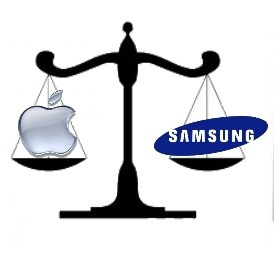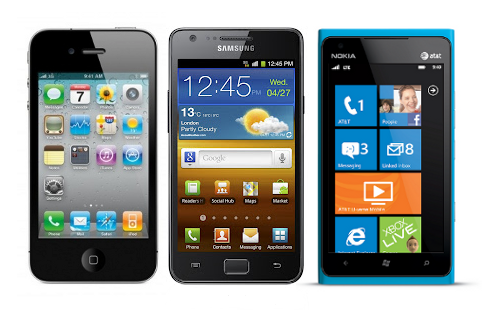While Patents May Be Bad, Samsung Goofed

Image by Sidduz.
As these kinds of lawsuits often are the case between Samsung and Apple was quite a circus. When we have adult professionals quibble over the shape of a phone and “pinch-to-zoom” gestures it’s hard not to find it at least a little bit ridiculous. It’s no wonder so many believe that the patent system as a whole is broken, serving less to promote true innovation, and more as an anti-competitive weapon for those who can afford to acquire and wield it.
Of course there are those who would point out that “trade dress” patents have been around for a long time, and build a case for their legitimacy and usefulness. It can be argued that if a competing product looks too similar to the original it is intended to either confuse the consumer to think it is the original or convince the consumer that it is similar enough to the original to buy for a lower price, in both cases taking business away from the original maker. This is seen as unfair, and is at the crux of the “intellectual property” infringement issue.
However, regardless of whether the patents system is a bad thing or a good thing it is in force, has been for a while, and apparently isn’t going anywhere any time soon. If you lead a corporation you have to be perfectly aware of this fact, and aware that others might use it to their advantage. In fact, if you are the leader of a corporation you likely even believe in the system as it is yourself, and would be willing to use it to your advantage just as everybody else.
I doubt Samsung leadership was any different in this respect. Most corporations will jump at the chance to take advantage, and even if leadership doesn’t feel particularly keen on it, investors and shareholders may put pressure on them. This is just a part of how corporations work, and a symptom of the system as a whole.
While Apple could certainly be chastised for so aggressively using the system to its advantage it’s far from the only one to be playing that game. Samsung itself isn’t quite so innocent when it comes to benefiting from government power at the expense of competitors. South Korean government outright banned import of iPhones to South Korea for two years in order to give its home company, Samsung, a chance to create and capitalise on a competing product. There are no good guys in this game, and there are hardly any moral high grounds to be had. The talk of “evil” corporations is just pointless noise. If you’re so eager to find evil to fight, turn to your governments.
Going back to this specific lawsuit and considering this reality as its context I think Samsung acted quite stupidly. When you look at the fact that Google warned Samsung not to make their phones too similar, and Samsung’s own internal memos indicating intention to imitate, it seems clear that Samsung knew what they were doing, and they also had to know the risks.
This isn’t about whether they are right or wrong to imitate, or whether Apple is right or wrong to sue and win. It’s about Samsung’s ability to adapt to the reality at hand and act accordingly; act responsibly. They seem to have failed that, probably betting that the scenario that just transpired wouldn’t happen. The company not only stands to lose its $1b to Apple, and possibly up to $3b, but also just had about 12 billion of its market value shaved off of it. To put this loss into perspective Google bought the entire Motorola Mobility corporation for 12.5b mainly to acquire its patent portfolio.
Quite simply, by aiming to make their phones so much like the iPhone, no doubt to woo consumers who were considering an iPhone, they pushed their luck, and that is turning out to be bad strategy.
This is not to say that their phones look exactly like the iPhone, just that they borrowed a little too many elements to get in trouble, and it is conceivable that an uninitiated customer may confuse it for an iPhone, and the more elements in the UI and hardware design bear similarity to the iPhone the greater the likelihood of that happening, and hence the greater likelihood for legal trouble of the kind that hit them.
Google carefully designed Android as well as their Nexus line of phones and tablets to avoid infringement. Microsoft designed an UI that pretty much bears no resemblance to either Android or the iOS, and Nokia’s phones are clearly different from the iPhone. In their court case against Samsung Apple itself pointed to a couple of competing smartphones which looked sufficiently different from the iPhone not to infringe making the whole argument that Apple wants a monopoly on square phones invalid. They want a monopoly on a very specific shape. It is indeed a type of a square, but it is not about all possible square-like designs.

Nokia Lumia 900 is distinctive.
So there are good examples of non-infringing smartphone designs, indicating their designers intent not to imitate. In contrast Samsung has demonstrated the opposite, and nobody should be too surprised at the results.


Comments - One Response to “While Patents May Be Bad, Samsung Goofed”
Sorry but comments are closed at this time.